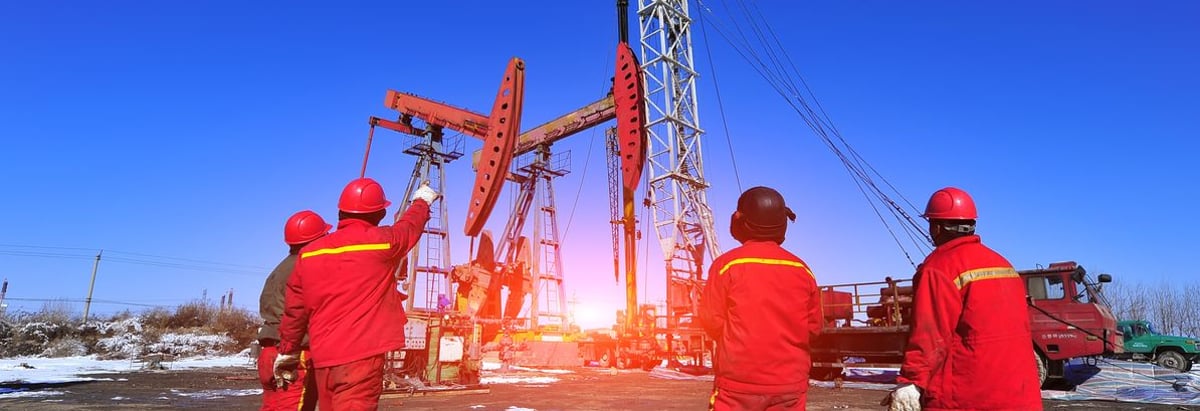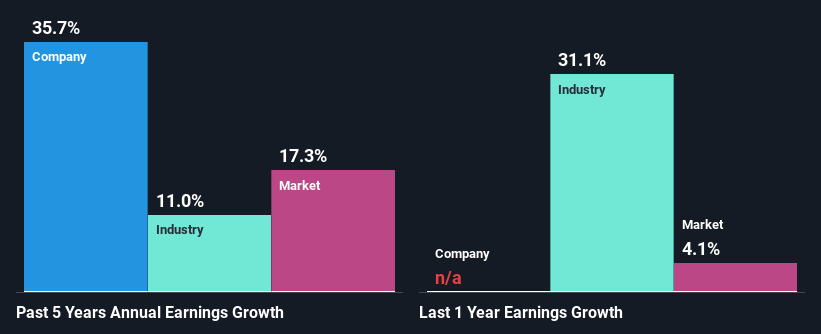- Australia
- /
- Energy Services
- /
- ASX:SHE
Stonehorse Energy Limited's (ASX:SHE) Stock's On An Uptrend: Are Strong Financials Guiding The Market?

Stonehorse Energy's (ASX:SHE) stock is up by a considerable 26% over the past three months. Given the company's impressive performance, we decided to study its financial indicators more closely as a company's financial health over the long-term usually dictates market outcomes. Specifically, we decided to study Stonehorse Energy's ROE in this article.
Return on Equity or ROE is a test of how effectively a company is growing its value and managing investors’ money. Simply put, it is used to assess the profitability of a company in relation to its equity capital.
Check out our latest analysis for Stonehorse Energy
How Do You Calculate Return On Equity?
Return on equity can be calculated by using the formula:
Return on Equity = Net Profit (from continuing operations) ÷ Shareholders' Equity
So, based on the above formula, the ROE for Stonehorse Energy is:
28% = AU$3.6m ÷ AU$13m (Based on the trailing twelve months to June 2022).
The 'return' is the profit over the last twelve months. So, this means that for every A$1 of its shareholder's investments, the company generates a profit of A$0.28.
What Has ROE Got To Do With Earnings Growth?
We have already established that ROE serves as an efficient profit-generating gauge for a company's future earnings. We now need to evaluate how much profit the company reinvests or "retains" for future growth which then gives us an idea about the growth potential of the company. Assuming all else is equal, companies that have both a higher return on equity and higher profit retention are usually the ones that have a higher growth rate when compared to companies that don't have the same features.
Stonehorse Energy's Earnings Growth And 28% ROE
To begin with, Stonehorse Energy has a pretty high ROE which is interesting. Additionally, the company's ROE is higher compared to the industry average of 7.9% which is quite remarkable. As a result, Stonehorse Energy's exceptional 36% net income growth seen over the past five years, doesn't come as a surprise.
We then performed a comparison between Stonehorse Energy's net income growth with the industry, which revealed that the company's growth is similar to the average industry growth of 36% in the same period.

The basis for attaching value to a company is, to a great extent, tied to its earnings growth. It’s important for an investor to know whether the market has priced in the company's expected earnings growth (or decline). By doing so, they will have an idea if the stock is headed into clear blue waters or if swampy waters await. If you're wondering about Stonehorse Energy's's valuation, check out this gauge of its price-to-earnings ratio, as compared to its industry.
Is Stonehorse Energy Efficiently Re-investing Its Profits?
Stonehorse Energy doesn't pay any dividend to its shareholders, meaning that the company has been reinvesting all of its profits into the business. This is likely what's driving the high earnings growth number discussed above.
Conclusion
In total, we are pretty happy with Stonehorse Energy's performance. Particularly, we like that the company is reinvesting heavily into its business, and at a high rate of return. Unsurprisingly, this has led to an impressive earnings growth. If the company continues to grow its earnings the way it has, that could have a positive impact on its share price given how earnings per share influence long-term share prices. Let's not forget, business risk is also one of the factors that affects the price of the stock. So this is also an important area that investors need to pay attention to before making a decision on any business. Our risks dashboard will have the 1 risk we have identified for Stonehorse Energy.
New: Manage All Your Stock Portfolios in One Place
We've created the ultimate portfolio companion for stock investors, and it's free.
• Connect an unlimited number of Portfolios and see your total in one currency
• Be alerted to new Warning Signs or Risks via email or mobile
• Track the Fair Value of your stocks
Have feedback on this article? Concerned about the content? Get in touch with us directly. Alternatively, email editorial-team (at) simplywallst.com.
This article by Simply Wall St is general in nature. We provide commentary based on historical data and analyst forecasts only using an unbiased methodology and our articles are not intended to be financial advice. It does not constitute a recommendation to buy or sell any stock, and does not take account of your objectives, or your financial situation. We aim to bring you long-term focused analysis driven by fundamental data. Note that our analysis may not factor in the latest price-sensitive company announcements or qualitative material. Simply Wall St has no position in any stocks mentioned.
About ASX:SHE
Stonehorse Energy
Operates as an oil and gas exploration and production company.
Flawless balance sheet low.
Market Insights
Community Narratives




